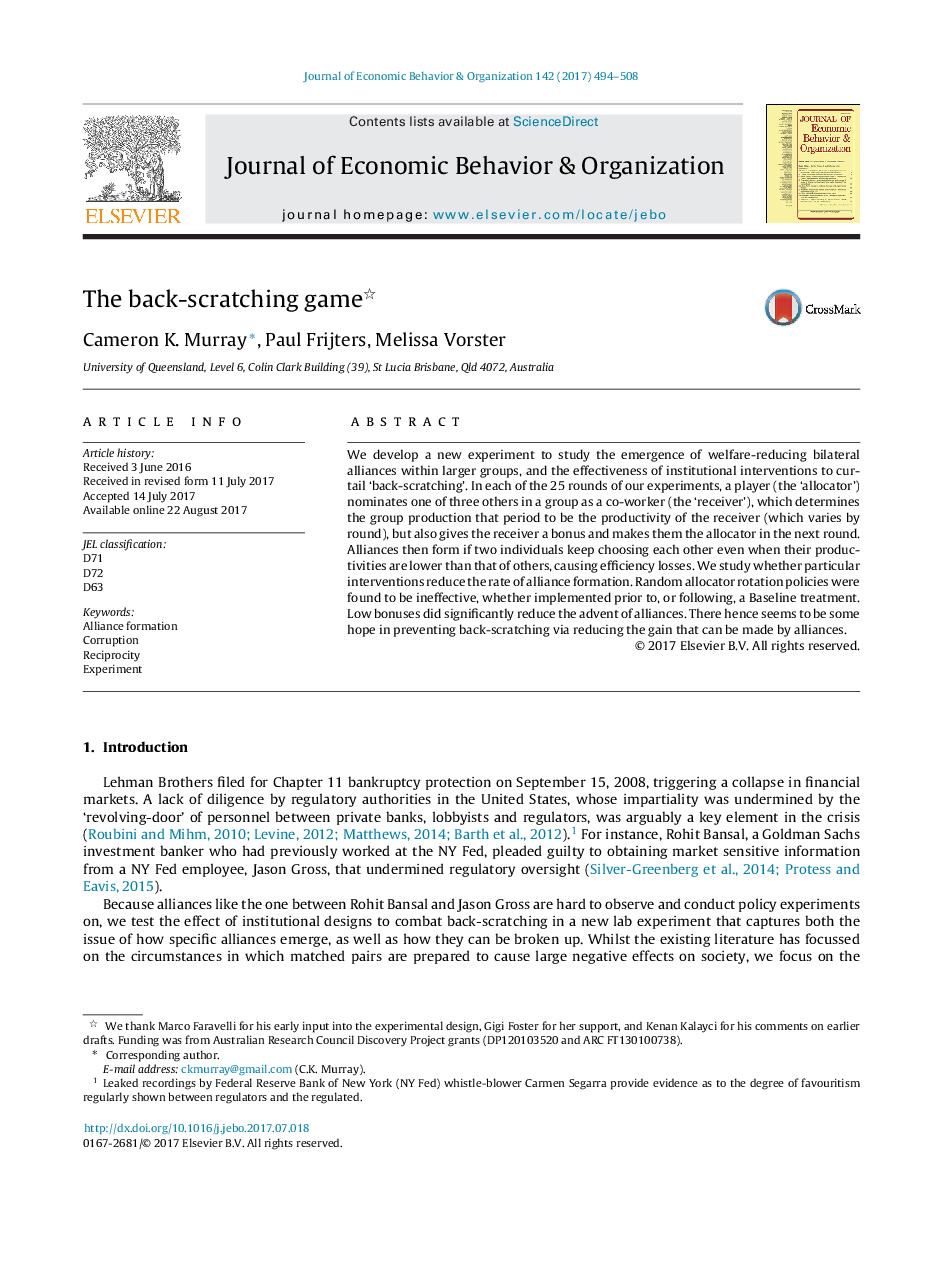| Article ID | Journal | Published Year | Pages | File Type |
|---|---|---|---|---|
| 5034479 | Journal of Economic Behavior & Organization | 2017 | 15 Pages |
Abstract
We develop a new experiment to study the emergence of welfare-reducing bilateral alliances within larger groups, and the effectiveness of institutional interventions to curtail 'back-scratching'. In each of the 25 rounds of our experiments, a player (the 'allocator') nominates one of three others in a group as a co-worker (the 'receiver'), which determines the group production that period to be the productivity of the receiver (which varies by round), but also gives the receiver a bonus and makes them the allocator in the next round. Alliances then form if two individuals keep choosing each other even when their productivities are lower than that of others, causing efficiency losses. We study whether particular interventions reduce the rate of alliance formation. Random allocator rotation policies were found to be ineffective, whether implemented prior to, or following, a Baseline treatment. Low bonuses did significantly reduce the advent of alliances. There hence seems to be some hope in preventing back-scratching via reducing the gain that can be made by alliances.
Related Topics
Social Sciences and Humanities
Economics, Econometrics and Finance
Economics and Econometrics
Authors
Cameron K. Murray, Paul Frijters, Melissa Vorster,
